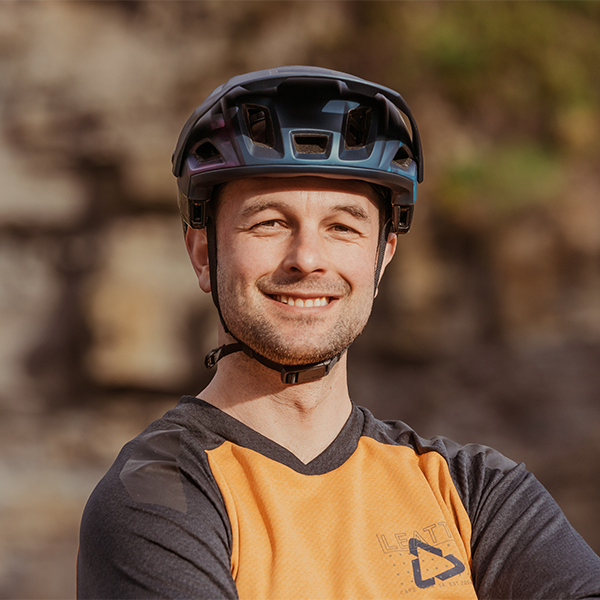Race Face’s all-new Atlas pedals boast a 6061 aluminium body and a chromoly steel axle, and are available in nine anodised colours.
Their single (per pedal) bearing and bushing setup is fully rebuildable using standard tools, and service kits are readily available.
At 99mm wide and 111mm long, the Atlas platform is relatively large. They’re 12mm deep across their entire area, except for the large, inboard 30mm-diameter bearing bulge.
Each pedal has 10 6mm long pins per side, but their height can be reduced thanks to included washers. Four spare pins are also included.
All 2022 Atlas pedals are backed by Race Face’s lifetime warranty, where crashes are also covered.
My pair of test pedals weighed 389g.
Race Face Atlas flat pedal performance
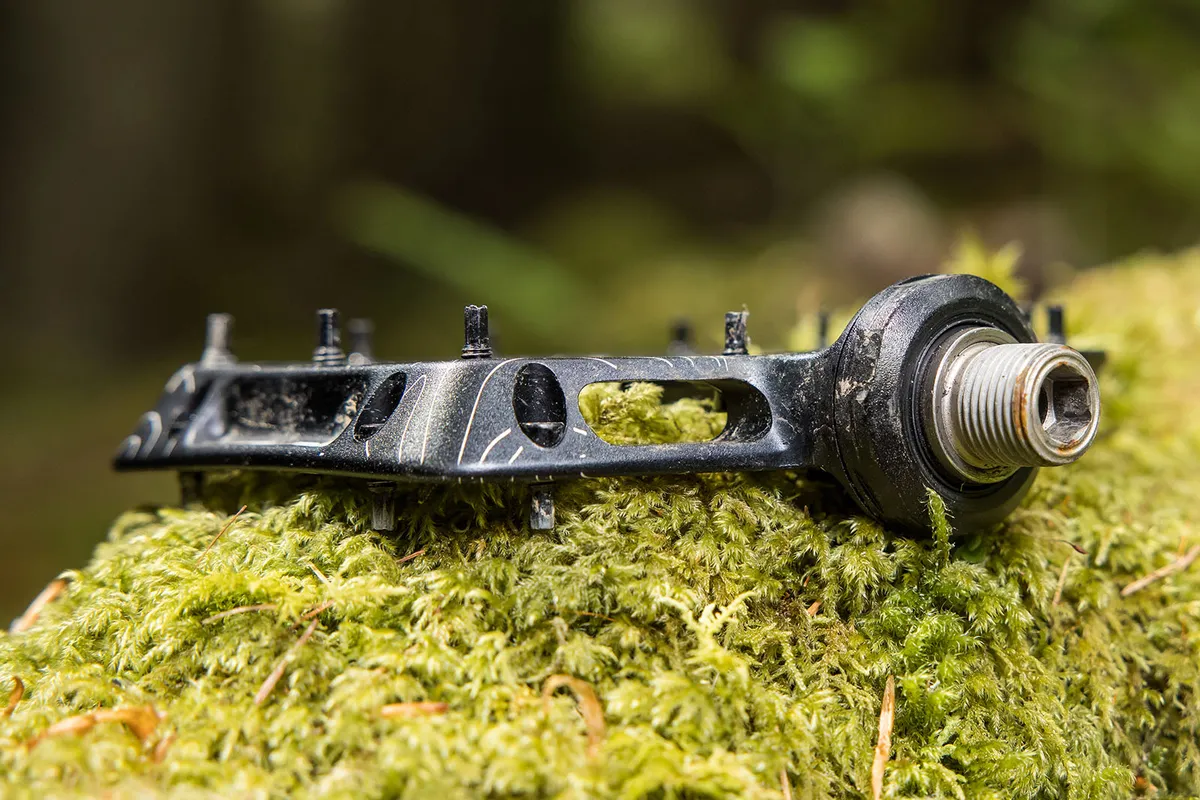
The long pins create a concave feel by lifting the front and rear of your shoes compared to the middle section, despite the platform’s flat profile.
However, the pins also create instability in your foot, with your toes and heels feeling as though they’re being flexed when they protrude over the ends of the pedal’s platform and pins.
This is more pronounced with softer-soled mountain bike shoes such as the FiveTen Trailcross.
This flexion is akin to clawing, but you’re not actively trying to ‘grip’ the platform, instead your feet are flexing over the pedals.
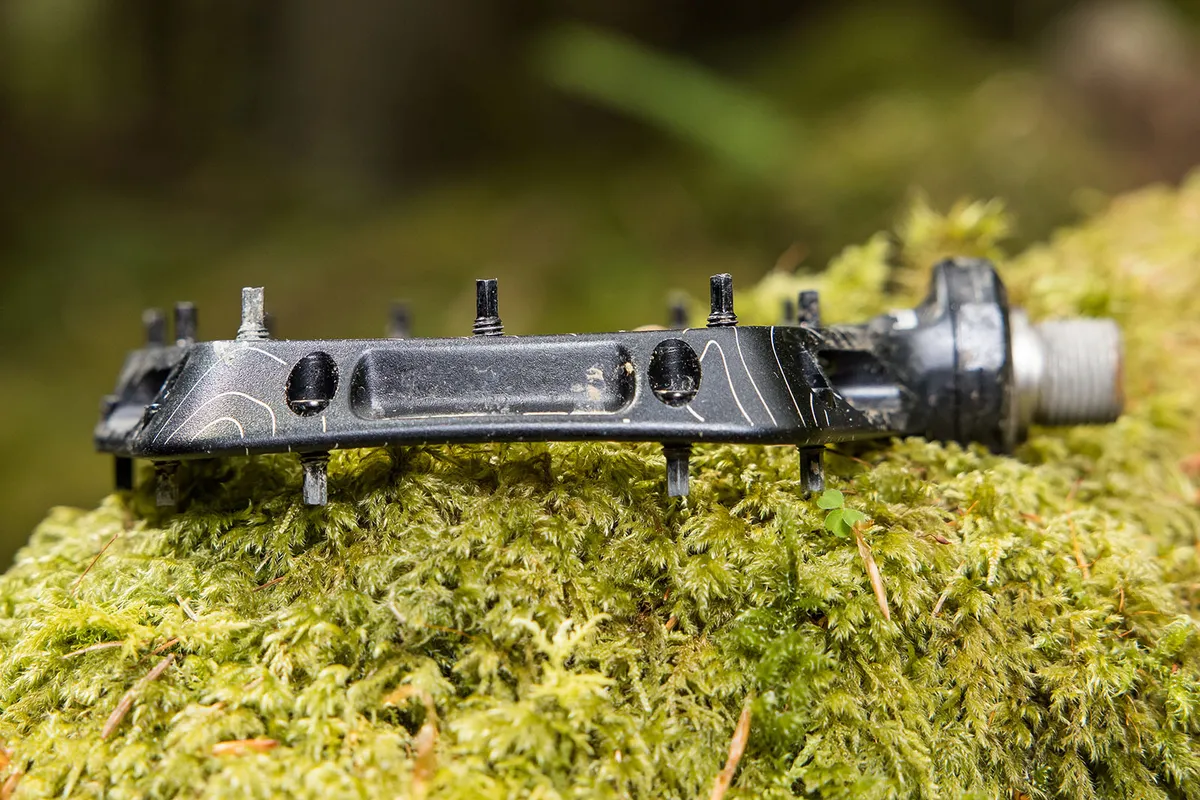
Reducing pin height helped, but this reduced grip and effective concavity.
There is limited foot walk, twist or pivoting, and your feet stay put over even very rough terrain.
Although relatively long, the tapered body combines with the tall pins to give the Atlas a smaller feel than the on-paper figures suggest. Your foot and ankles pivot up and down on the pedals, reducing stability.
Increasing platform length and width would address this issue and the pins could remain in their longer setting without contributing to instability, discomfort or clawing.
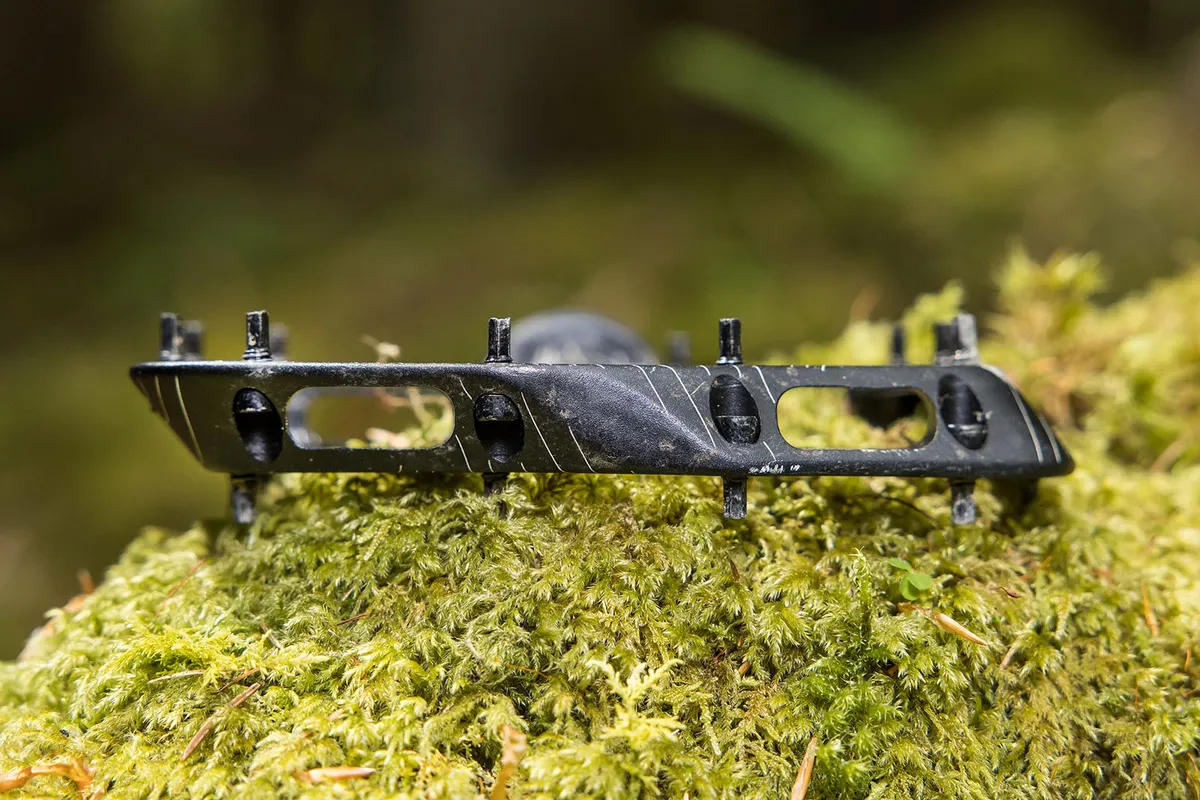
The bulky inner bearing housing – that sits snug to the crank – is imperceptible when riding, and doesn’t push your foot outboard. The bearing helps the cranks rotate smoothly, giving a premium feel.
Chamfered and tapered edges help deflect rock and ground strikes, but the long, sharp pins dig into softer surfaces. The pins are robust however, remaining damage free.
No left or right markings are present, slowing installation.
Race Face Atlas flat pedal bottom line
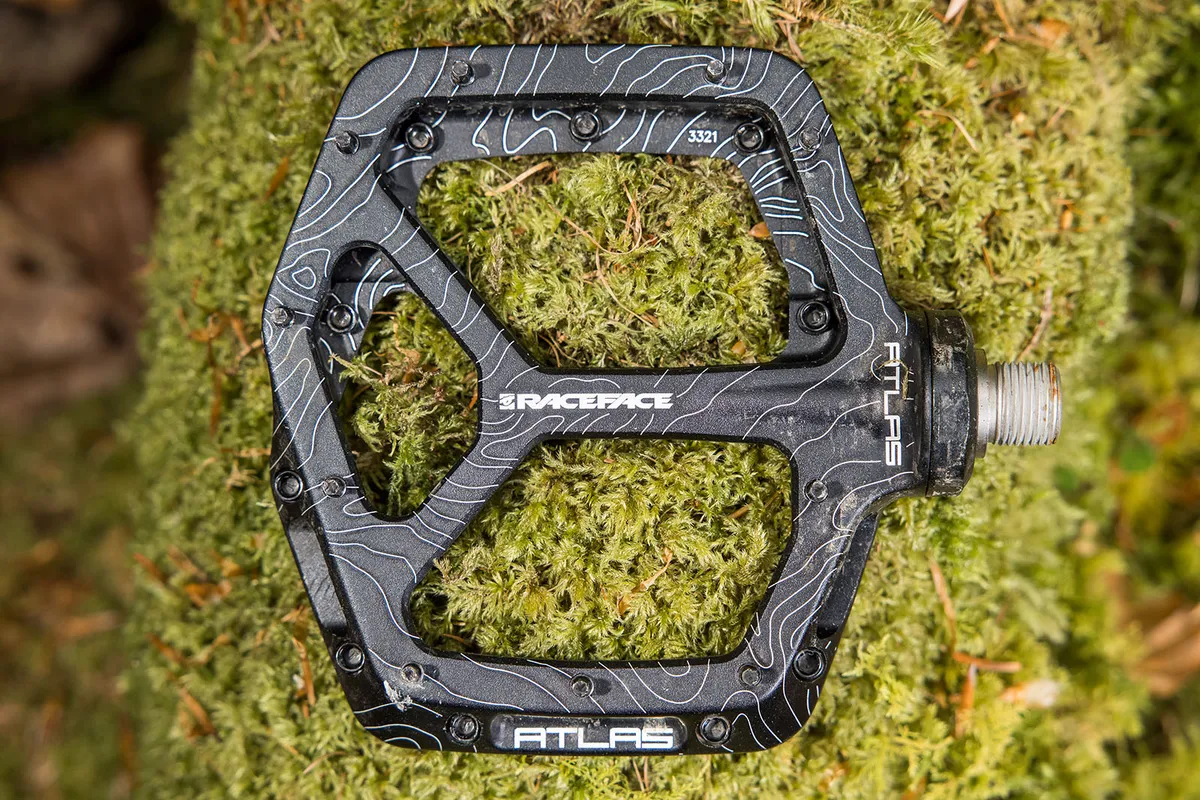
With plenty of good features, the Atlas mountain bike pedals are solid performers. However, the pin height needed to create a concave platform and offer traction poses other issues, such as foot instability.
While people with smaller feet will suit the Atlas well, increasing the pedal body’s size without changing its design would only boost performance for a wider number of riders.
How we tested | Mountain bike pedals
We’ve tested nine flat pedals in some of the harshest conditions on a host of terrain types – from bumpy on-the-gas sections through to flat out rough and worn DH tracks.
This was designed to assess how much grip they offer, and help you find the perfect pair for your riding.
Our tester, senior technical editor Alex Evans, wears size EU42 shoes, and tested the pedals with Five Ten’s Trailcross XT, Impact Pro and Trailcross GTX shoes.
Products on test
- Crankbrothers STAMP 1 V2 large
- Deity Deftrap
- DMR V6
- HT PA03A
- Look Trail Roc+
- Pembree D2A
- Race Face Atlas
- SDG Comp
- Shimano PD-GR400
Product
| Brand | Race_face |
| Price | £170.00, $180.00 |
| Weight | 389g |
Features
| Features | Size: 99(W)x111(L)x11(D)mm Colours: Black; Blue Green; Kashmoney; Orange; Purple; Red; Silver; Turquoise Body material: 6061 Aluminum Axel material: Chromoly steel |
